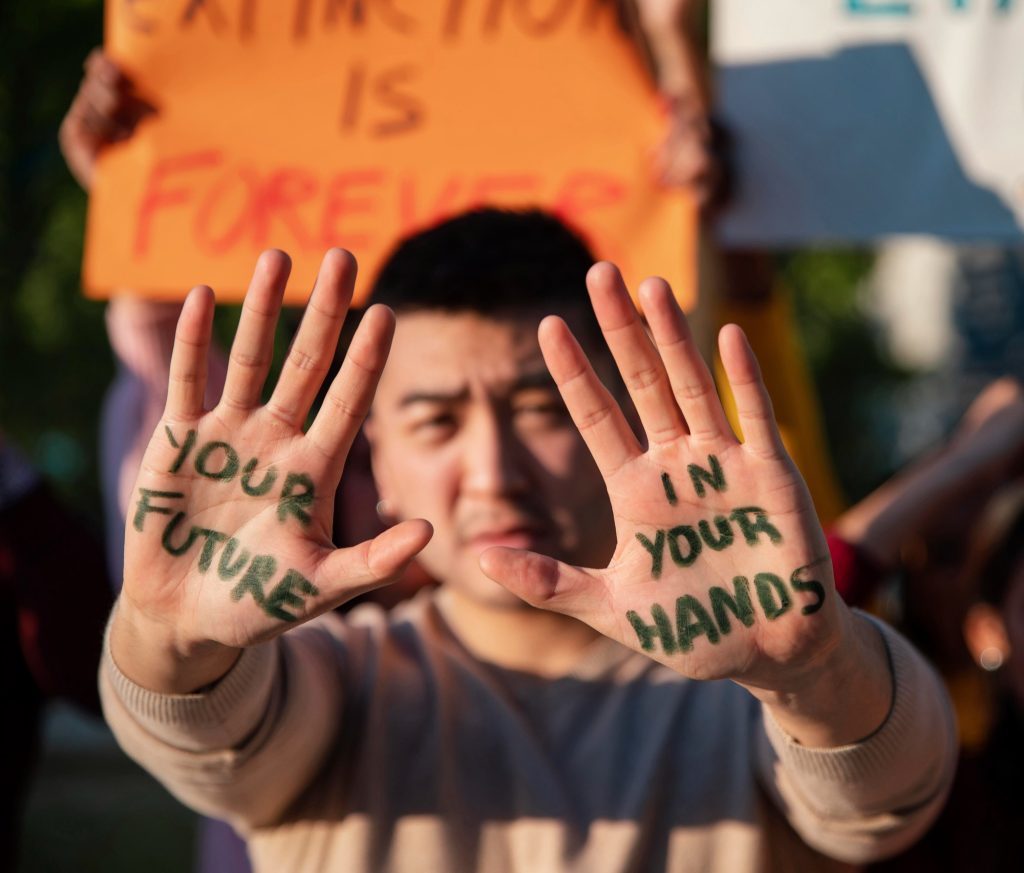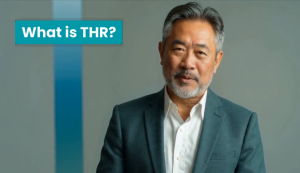The assault on adult rights

The Consequences of Misinformation in Tobacco Control
For decades, the global fight against tobacco-related disease has been spearheaded by institutions such as the World Health Organization (WHO), the Framework Convention on Tobacco Control (FCTC), and an array of non-governmental organizations (NGOs) dedicated to tobacco control. While the intention of protecting public health is laudable, the methods employed by these organizations in recent years have drawn criticism for undermining the fundamental rights of adults and for corrupting the processes by which governments formulate policy. This is particularly evident in their approach to less harmful nicotine products – such as vapes, heat-not-burn devices, and oral nicotine pouches – which offer the potential to reduce the deadly consequences of combustible tobacco use.
Central to these concerns is the dissemination of disinformation and flawed research on tobacco harm reduction. Rather than engaging with the growing body of scientific evidence demonstrating that alternative nicotine products can significantly lessen the risks associated with smoking, many NGOs and global health authorities have published studies and reports riddled with methodological errors, selective data presentation, and unfounded conclusions. The steady stream of negative messaging, often amplified by influential actors like the Bloomberg Foundation, has created a climate where adult smokers are denied access to accurate information and viable alternatives that could save lives.
The role of the Bloomberg Foundation in shaping global tobacco policy deserves particular scrutiny. Through substantial financial grants, the Foundation has become one of the most powerful private actors in tobacco control. Its recipients, often major NGOs and academic institutions, are required to adopt a prohibitionist mindset toward nicotine products not approved by pharmaceutical authorities. This means rejecting harm reduction approaches in favour of blanket bans and severe restrictions. This prohibitionist ideology, bolstered by Bloomberg’s largesse, has contributed to a stifling orthodoxy in public health circles, where dissenting voices and evidence-based advocacy for risk reduction are marginalized or dismissed outright.
The consequences of this approach are grave. First and foremost, it constitutes an assault on the rights of adult smokers to make informed choices about their health. Harm reduction is a principle recognized in many other areas of public health—such as needle exchange programmes and supervised injection sites for drug users – yet when it comes to nicotine, adults are infantilized and denied agency. The deliberate spread of misinformation about the relative harms of vaping, heat-not-burn products, and nicotine pouches serves only to perpetuate the deadly status quo, ensuring that millions remain exposed to the hazards of combustible tobacco.
This approach has created significant challenges for adult smokers seeking accurate information and practical alternatives to traditional combustible tobacco. Rather than fostering open dialogue and transparent evaluation of the growing scientific consensus on reduced-risk nicotine products, the prevailing narrative silences diverse perspectives and discourages meaningful debate. The result is an environment where innovation is stifled, consumer choice is limited, and adults who wish to make informed decisions about their health are left without the tools or support they need.
In this context, it is essential for stakeholders, policymakers, and members of the public to reexamine the direction of global tobacco control efforts. By prioritizing scientific rigor, transparency, and respect for adult autonomy, we have the opportunity to reshape the conversation and advocate for policies that truly protect public health. Organizations such as righttovape.org provide platforms where individuals can access credible resources, share experiences, and support evidence-based harm reduction strategies.
Collaboration and engagement among diverse groups, including public health experts, consumer advocates, and affected individuals, are critical to ensuring that tobacco policy serves the interests of those most impacted. By challenging entrenched ideologies and insisting on fact-based decision-making, we can help create a future where adult rights and public health are advanced together.
Furthermore, the corruption of governmental policy-making is a direct result of this dynamic. Governments, reliant on the expertise and financial support of international organizations and NGOs, find themselves pressured into enacting draconian regulations and outright bans on safer nicotine products.
The current landscape of global tobacco control reveals significant challenges that demand our attention. While organizations such as the World Health Organization and the Framework Convention on Tobacco Control have contributed to public health, their recent methods, particularly regarding tobacco harm reduction, have prompted legitimate concern. Many adult smokers seeking alternatives to combustible tobacco products encounter barriers that stem from a climate of misinformation, selective research practices, and inflexible policy recommendations.
A key factor intensifying this issue is the influence of private foundations, notably the Bloomberg Foundation, which has become a central player in shaping tobacco policy. The Foundation’s considerable financial support to major NGOs and academic institutions has encouraged a prohibition-focused approach to nicotine products not approved by pharmaceutical authorities. This has led to widespread adoption of restrictive policies, marginalization of dissenting voices, and the suppression of scientific evidence supporting harm reduction.
The resulting environment undermines the rights of adult smokers. They are left without clear and accurate information about less harmful alternatives, such as vapes, heat-not-burn devices, and oral nicotine pouches. Harm reduction, a principle accepted in other areas of public health, is often ignored when addressing nicotine use. Adults are denied the opportunity to make informed decisions about their health and are instead confronted by policies that perpetuate the risks associated with traditional tobacco products.
To move forward, it is important for all stakeholders – public health experts, consumer advocates, policymakers, and community members – to engage in open dialogue and reassess the direction of tobacco control strategies. Transparency, scientific rigor, and respect for adult autonomy must guide future policy. Platforms like righttovape.org are invaluable, offering credible resources, opportunities to share experiences, and support for evidence-based harm reduction. By fostering collaboration and prioritizing honest debate, we can support innovation and deliver meaningful choices to those most affected.
In summary, the widespread dissemination of misinformation and flawed research by leading global health organizations and their partners, often driven by donor agendas, has not resolved the tobacco crisis. Instead, it has infringed upon adult rights and compromised scientific integrity. A concerted effort to embrace tobacco harm reduction will be necessary to reduce smoking-related harm and realize a healthier future.
Call to Action: Restoring Reason and Rights – How Individuals Can Make a Difference
Faced with the formidable machinery of global health policy and its far-reaching consequences, it is natural to question the impact that one person can have. However, individual action remains a powerful force for change.
Begin by seeking accurate, evidence-based information about tobacco harm reduction. Challenge sensationalist headlines and ideologically driven reports by consulting rigorous scientific research and firsthand testimonials. This commitment to informed citizenship is essential for resisting the spread of misinformation.
Advocacy is equally important. Engage in conversations on social media, in community forums, and with elected officials. Encourage policymakers to consider comprehensive scientific evidence and respect adult autonomy in matters of health. Support organizations dedicated to rational harm reduction and scientific transparency and amplify their efforts within your community. Tobacco Harm Reduction consumer advocacies exist in many countries around the world and will welcome your support. A good place to start is righttovape.org.
Demand greater openness from NGOs, foundations, and health authorities. Request access to research data and the participation of independent experts in policy discussions. Scrutinize financial incentives and donor-driven objectives to ensure that public interest and scientific integrity remain at the forefront of decision making.
Education is a powerful tool. By sharing your experiences and knowledge, you can promote honest dialogue among friends, family, colleagues, and the broader public. Dispelling myths and fostering understanding at the grassroots level is vital for shifting the collective perspective toward reason and compassion.
Finally, exercise your influence as both a consumer and a voter. Patronize businesses that endorse harm reduction and innovation, and support representatives who advocate for evidence-based policies and personal freedom. Each act, no matter how modest, contributes to the gradual erosion of entrenched dogma and the advancement of public health.
Although the challenges are significant, history demonstrates that progress is built upon many individual acts of conviction and courage. The restoration of adult rights and the adoption of rational public health policies begin with the resolve of individuals to demand truth, dignity, and change. The tools to address the current challenges are accessible, the will to act resides within each of us, and the opportunity to make a difference is immediate.
These policies often disregard the best available scientific evidence and are instead grounded in ideology and donor-driven agendas. The result is a policy landscape where public health is subordinated to dogma, and adult smokers are abandoned to the ravages of tobacco-related disease.
In summary, the campaign of disinformation and flawed research promoted by the WHO, FCTC, and tobacco control NGOs – frequently underwritten by the Bloomberg Foundation – is not merely ineffective in addressing the global tobacco crisis. It represents a profound violation of adult human rights, undermines scientific integrity, and distorts governmental policy-making. Until tobacco harm reduction is embraced as a legitimate and necessary approach, the deadly toll of smoking will continue unabated, and the promise of a healthier future will remain unfulfilled.
In the face of institutional inertia and vested interests, individual action may appear inconsequential. Yet history is clear: progress is the sum of countless acts of courage, curiosity, and conviction. The restoration of adult rights and rational public health begins not with sweeping decrees or distant authorities, but with the determination of individuals to refuse complacency, demand truth, and insist on dignity.
The tools to redress this disaster are within reach. The will to act resides in each of us. The time is now.









